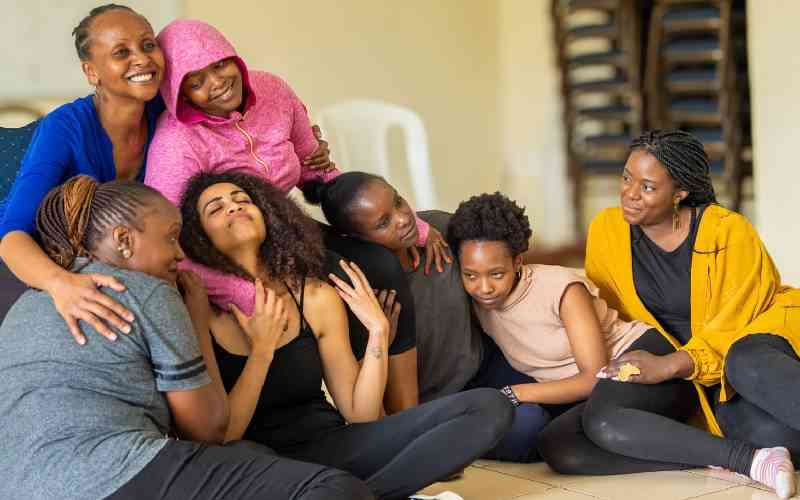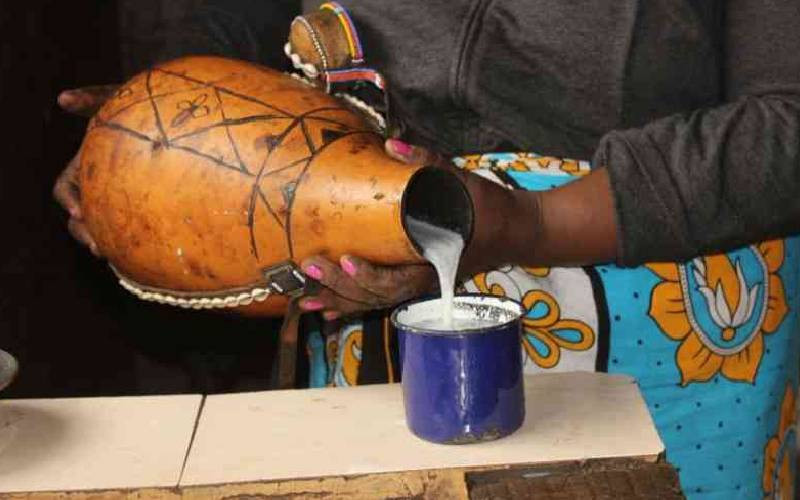
Five Kenyan actresses are today set to feature in a globally acclaimed play that depicts issues of sexual and gender-based violence.
Dubbed 'For colored girls' the play is part of a Campaign organised by the European Union in Kenya, the Embassy of Denmark in Kenya and ACT: New Nordic Voices.
Other performances will be staged in Kisumu and Mombasa counties.
The play's Artistic Director is Kenyan Michael Omoke, founder of ACT: New Nordic Voices, and directed by Ms Cheryl Williams, a US-based theatrical director.
The five actresses are Nini Wachera, Melissa Kiplagat, Mbeki Mwalimu, Marianne Nungo, and Tana Gachoka.
Two Danish-based actors, Wanjiku-Victoria Seest and Rebecca Langley are also starring in the play.
The play features seven characters each representing a different color of the rainbow, acted by renowned Kenyan theatre and film stars.
- New research reveals lasting physical, mental scars of FGM
- After the trauma, finding pathways to healing
- When silence hurts: Survivors' stories highlight grim reality of sexual violence in Kenya
- Over 100 people die by suicide in three months in Nyeri County
Keep Reading
According to the Kenya Demographic and Health Survey (KDHS, 2022), over 40 percent of Kenyan women have experienced physical or sexual abuse, including intimate partner violence, and one in every five girls has been subjected to child marriage or female genital mutilation/cutting.
The play and campaign will contribute to Kenya's collective response to violence against women and girls, in line with Kenya's ambitious agenda of ending GBV by 2026.
The play comprises 20 scenes put together and featuring seven women each representing the color of the rainbow.
It is part of activities surrounding the global 16 Days of Activism against GBV- a key international moment to call for an end to violence against women and girls that begins on November 25, on the International Day for the Elimination of Violence Against Women, and runs until December 10, Human Rights Day.
While speaking during a KTN News interview, the play's director Cheryl Williams said the play is still 'relevant' to GBV-related incidents happening to women and girls across the country.
She said the play is part of a campaign dubbed, 'Silenced No More', that aims to address GBV in Kenya through a series of theater performances, debates and discussions in line with the 16 days of activism.
"The issues highlighted in the Play deals with Sexual Gender Based Violence. Kenya has been addressing these issues and it is now time to take action," Williams said.
She added, "Survivors of sexual gender-based violence should know that they are no longer victims but victors. They overcame what they went through and it is important to tell those stories through film plays to spread hope and encouragement," she said.
According to her, gender-based violence is a global challenge that requires concerted efforts from all stakeholders to win the war.
 The Standard Group Plc is a multi-media organization with investments in media
platforms spanning newspaper print
operations, television, radio broadcasting, digital and online services. The
Standard Group is recognized as a
leading multi-media house in Kenya with a key influence in matters of national
and international interest.
The Standard Group Plc is a multi-media organization with investments in media
platforms spanning newspaper print
operations, television, radio broadcasting, digital and online services. The
Standard Group is recognized as a
leading multi-media house in Kenya with a key influence in matters of national
and international interest.











